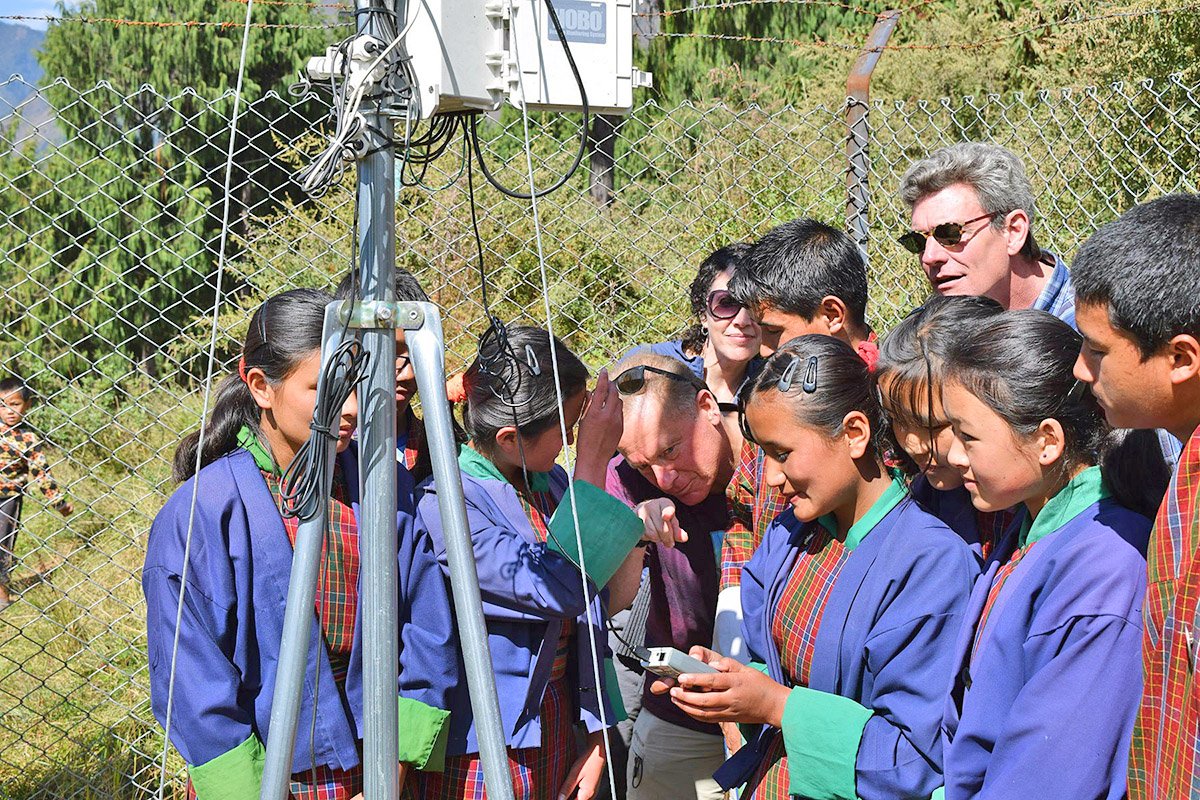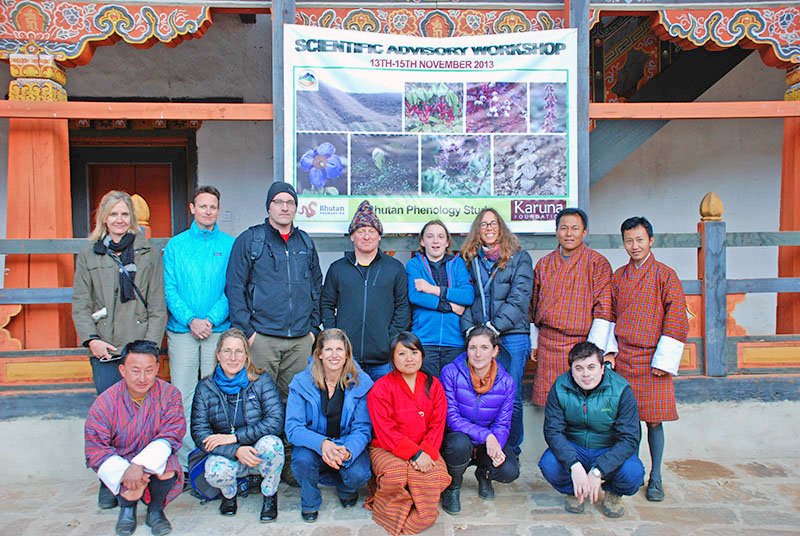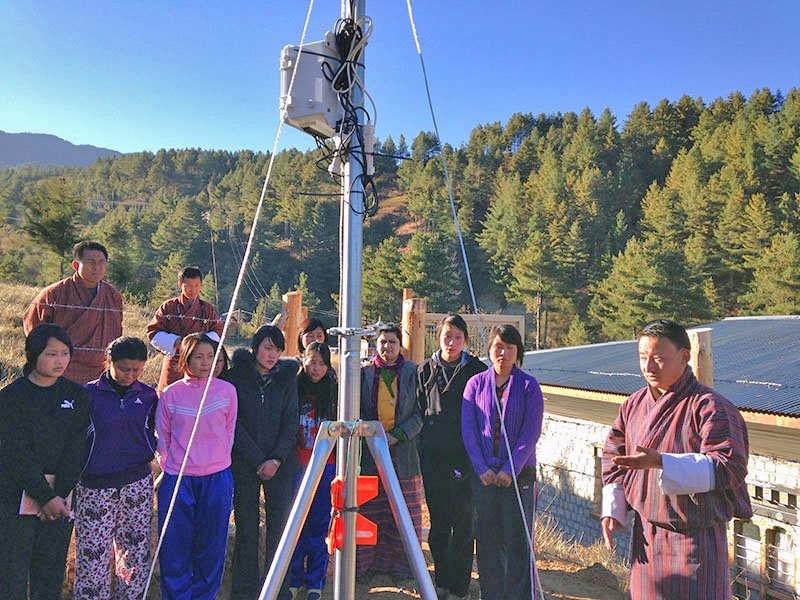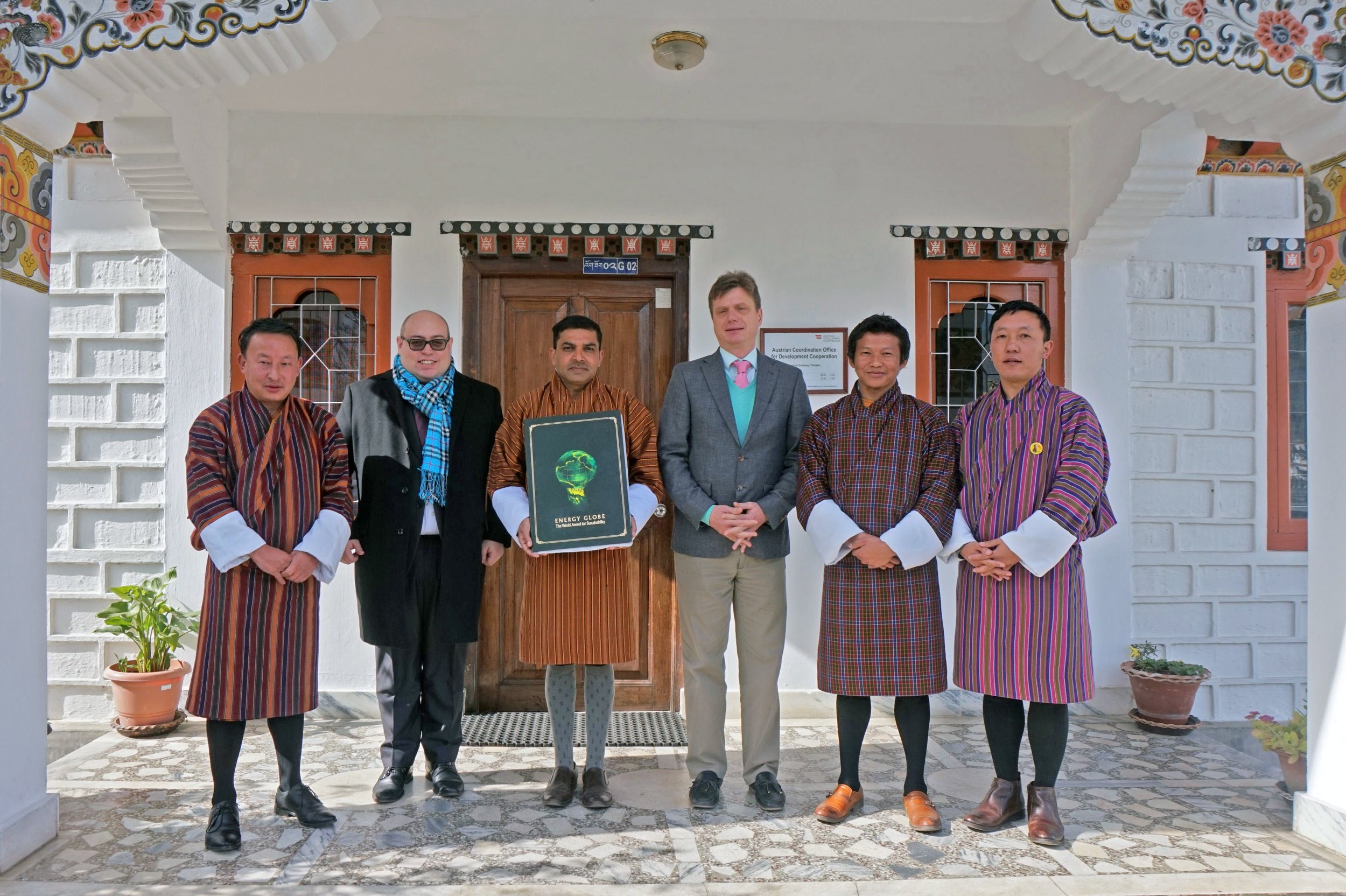
Karuna Foundation grants are developed in collaboration with partners. We do not accept unsolicited applications for funds.
Current Initiatives
Beginning in 2024, Karuna Foundation partnered with the the Tarayana Foundation in Bhutan to explore climate-resilient housing solutions for Bhutan’s most vulnerable communities. Stay tuned here for updates as we continue to develop this innovative program.
Past Initiatives
Bhutan at UNFCCC COP 28
Karuna Foundation was proud to provide partial support to the Bhutanese negotiating delegation as well as Bhutan’s first pavilion at COP28 in Dubai in 2023. The climate change Conference of Parties (COP) brings together global players on a common platform under the aegis of the United Nations Framework Convention on Climate Change (UNFCCC). The Bhutan Pavilion at COP28 shown a spotlight on Bhutan's pioneering climate story under the banner of "Sustaining Carbon Neutrality".
Energy Efficient and Sustainable Built Environment
Bhutan’s rapid growth in recent decades has increased the demand for electricity in the country's urban and rural populations. While Bhutan is able to provide citizens with inexpensive electricity through hydropower, the government is dependent on revenue generated by selling the majority of this electricity to India. Reducing power consumption by creating an energy efficient and sustainable built environment will both maintain this revenue stream while encouraging positive in-country development. However, rapid urban growth is propelling the construction of new building stock reliant on concrete and lacking insulation, which breaks from traditional Bhutanese construction using meter-thick rammed earth walls that provided insulation.
Owing to the powerful solar resources available in the high-altitude regions, there is potential for successful high-performance construction in Bhutan. Starting in 2014, Karuna Foundation began contributing high-performance building expertise and resources to the Royal Institute of Law and the Jigme Singye Wangchuck School of Law with the goal of promoting a sustainable development strategy that provides citizens with comfortable, productive, and healthy indoor environments while decreasing electricity consumption. Karuna Foundation enlisted local Pacific Northwest partners Holst Architecture, Indicator, LLC, and Arctic Sun, LLC to consult on integrating energy efficient building methods into traditional Bhutanese architecture.
Featured Project: Jigme Singye Wangchuck School of Law Library
Beginning in 2014 and in partnership with The Jigme Singye Wangchuck School of Law (JSW Law) and the Bhutan Foundation, the Karuna Foundation sponsored the construction of a Law Library as an energy efficient, high-performance building project. This lighthouse project combines local materials and international expertise to demonstrate the feasibility of energy efficient construction to the Bhutanese building community. With the help of Portland partners Cory Hawbecker and Yuki Bowman, from Holst Architecture, Inc., Seattle partner Dan Whitmore, of RDH, LLC, as well as Thorsten Chlupp, of Arctic Sun, LLC, in Fairbanks, the Karuna Foundation provided expertise and resources to enhance the build out of the JSW Law campus. The Law School’s permanent campus, including the Law Library, in the hills above Paro was completed in and consecrated in 2023.
Named for Bhutan’s Fourth King and led by Her Royal Highness Ashi Sonam Dechan Wangchuck, a princess of Bhutan and a Stanford and Harvard Law graduate, JSW Law is the first Law School in Bhutan.
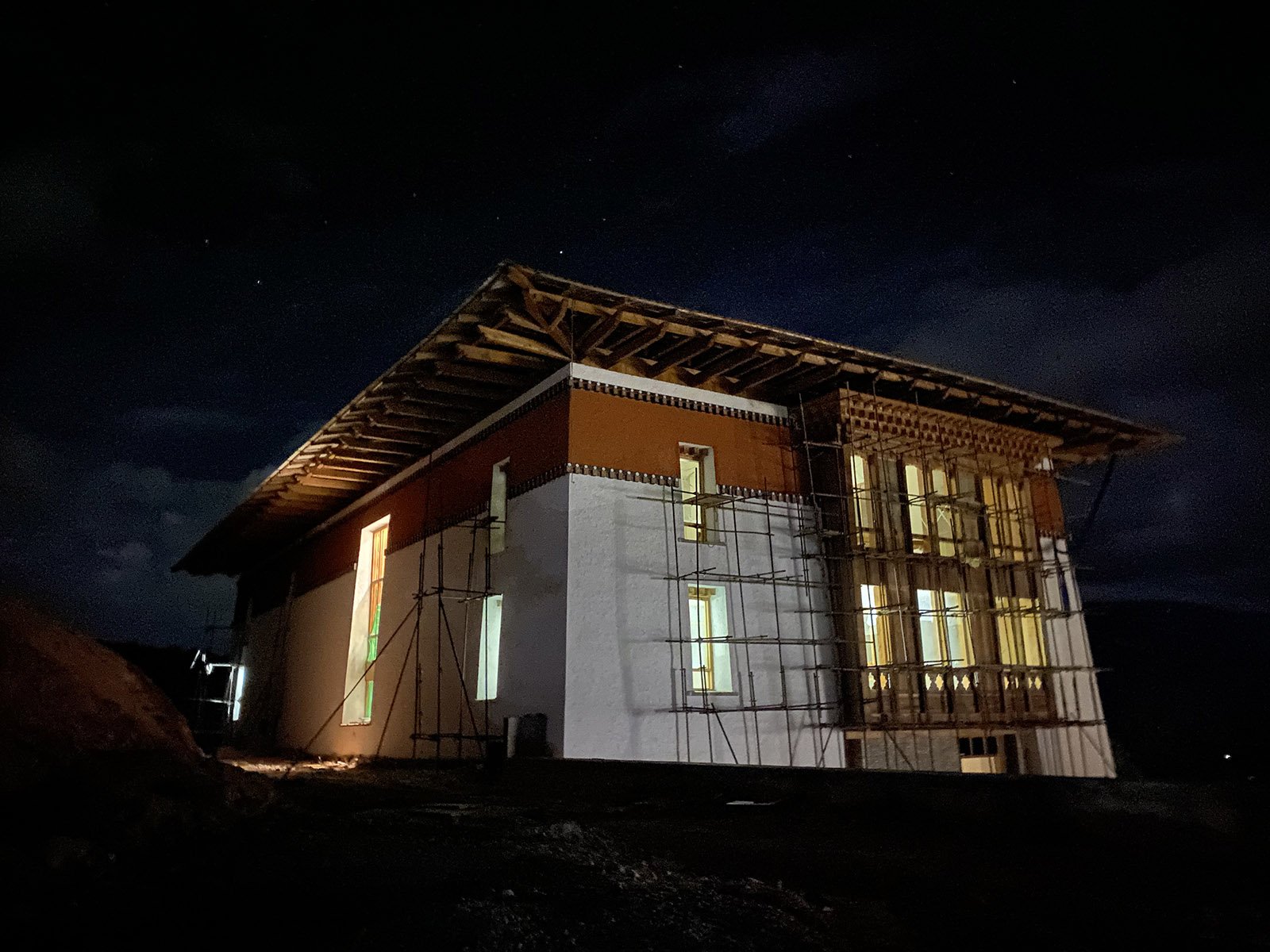
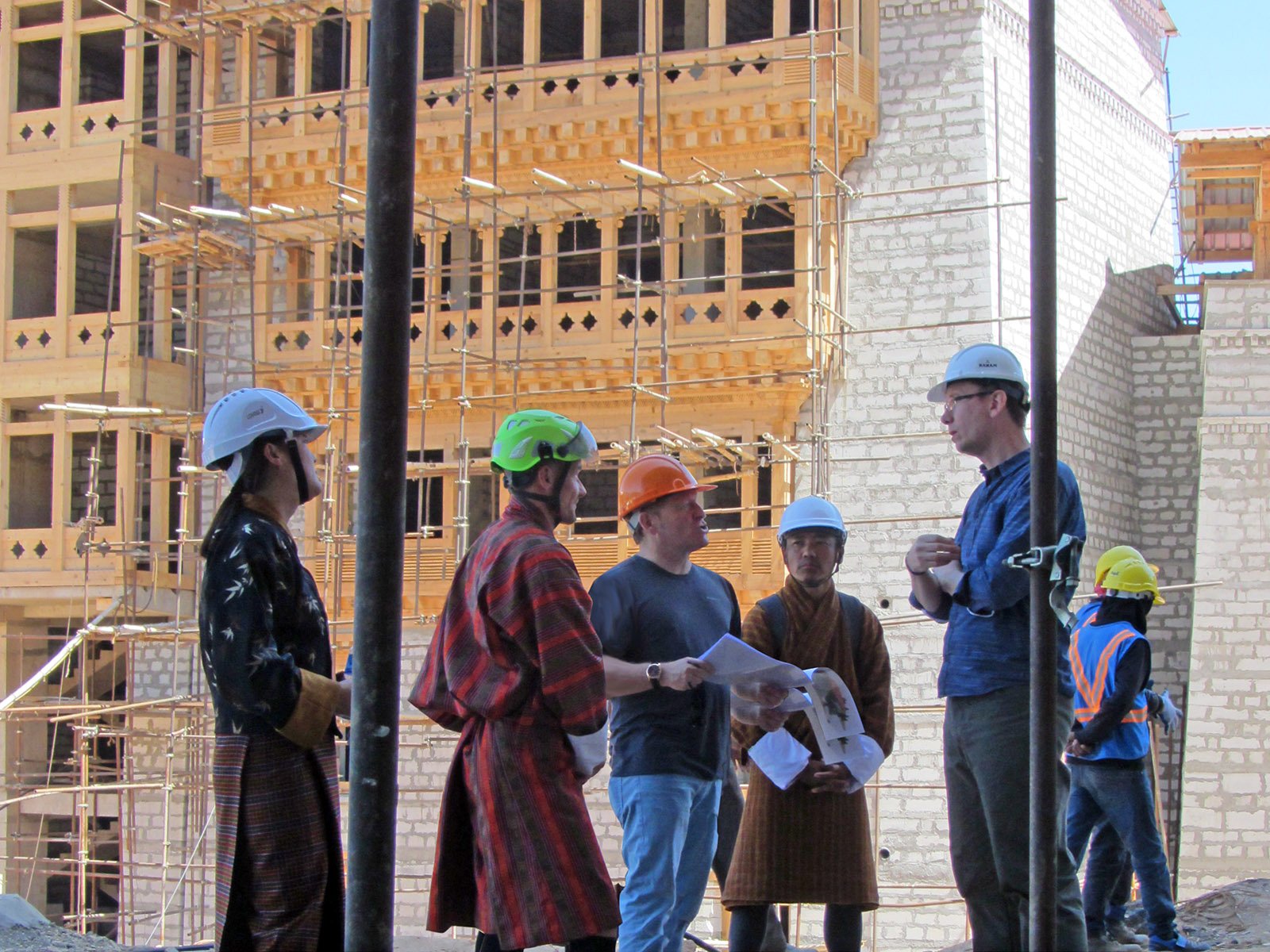
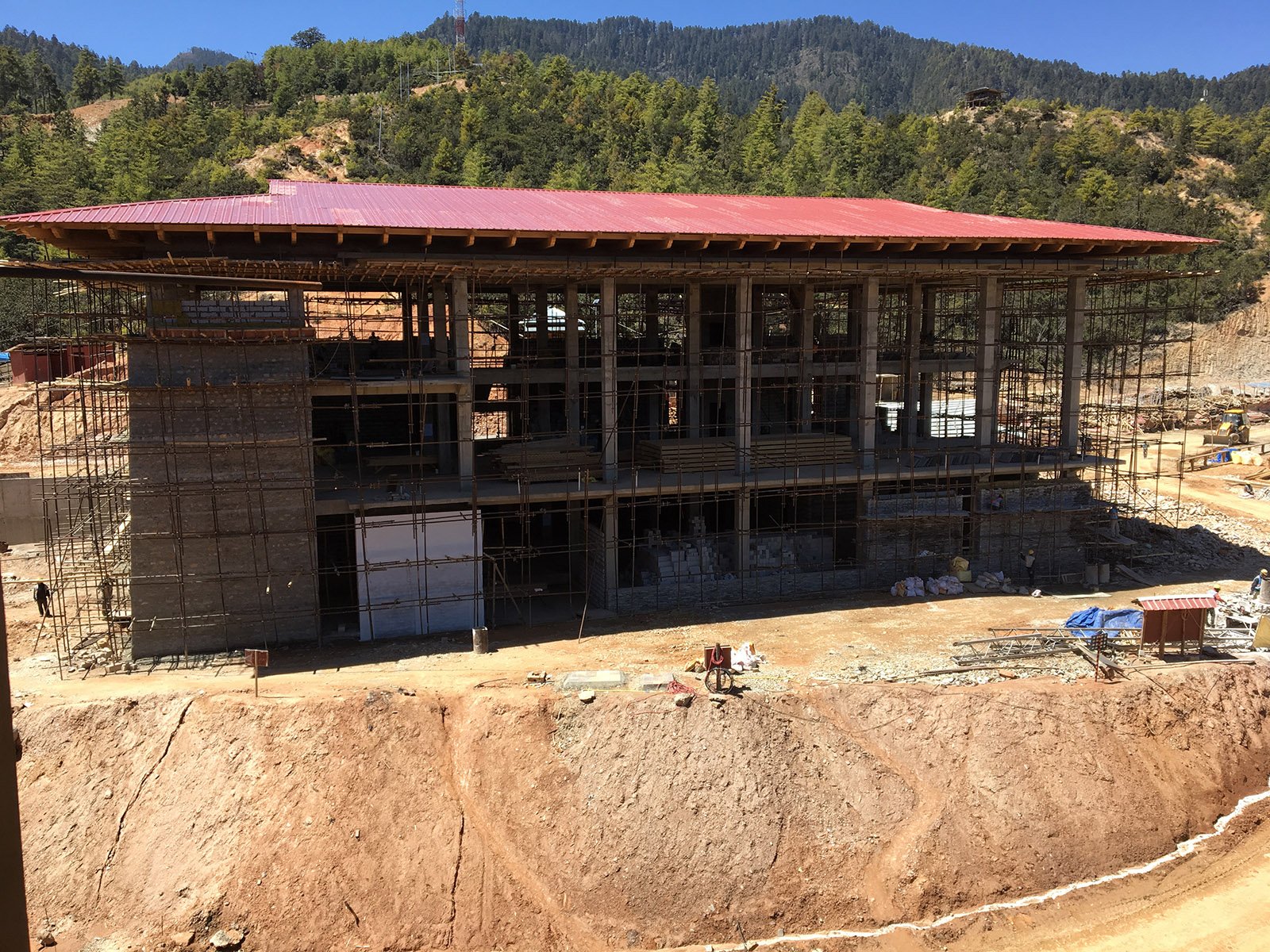
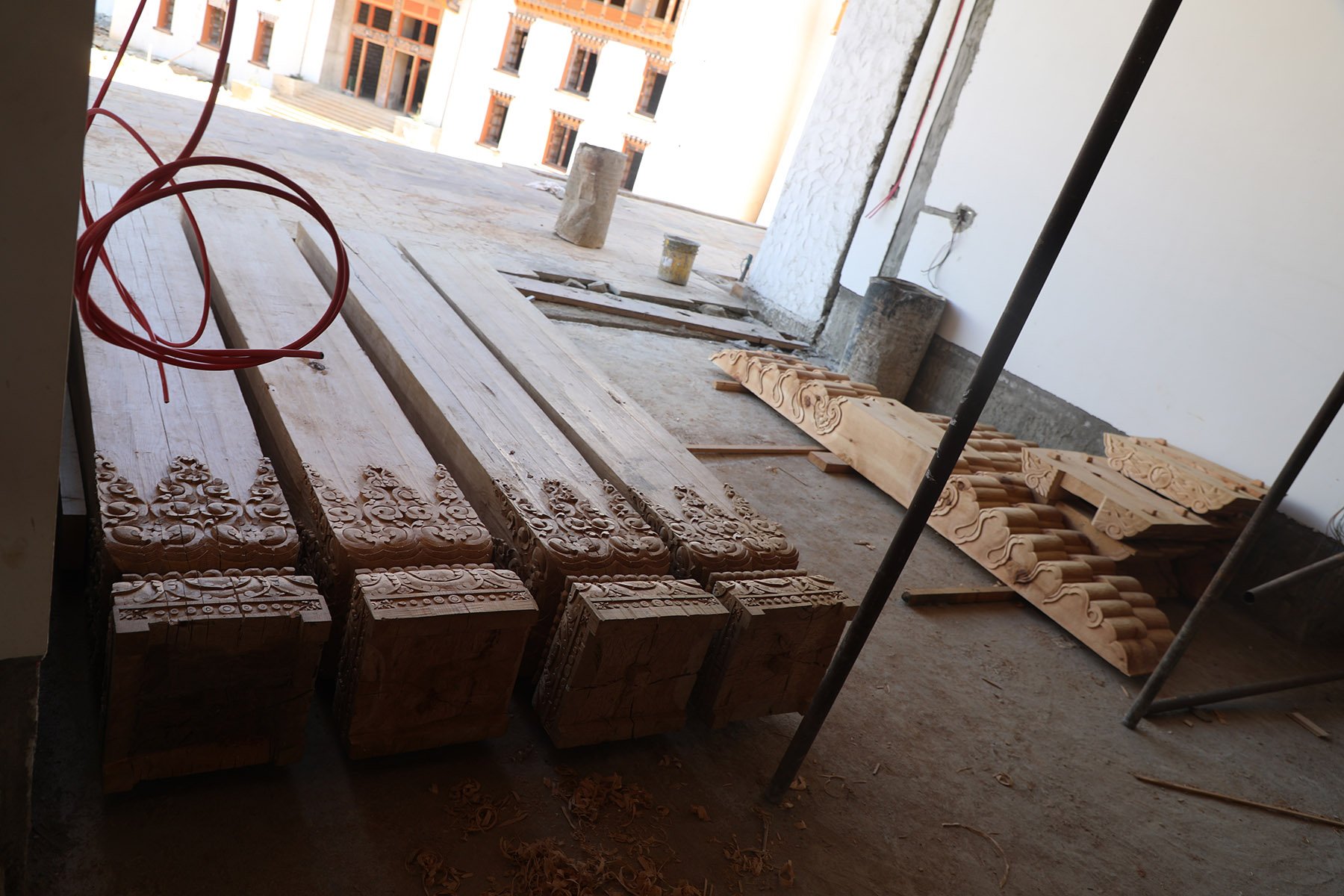
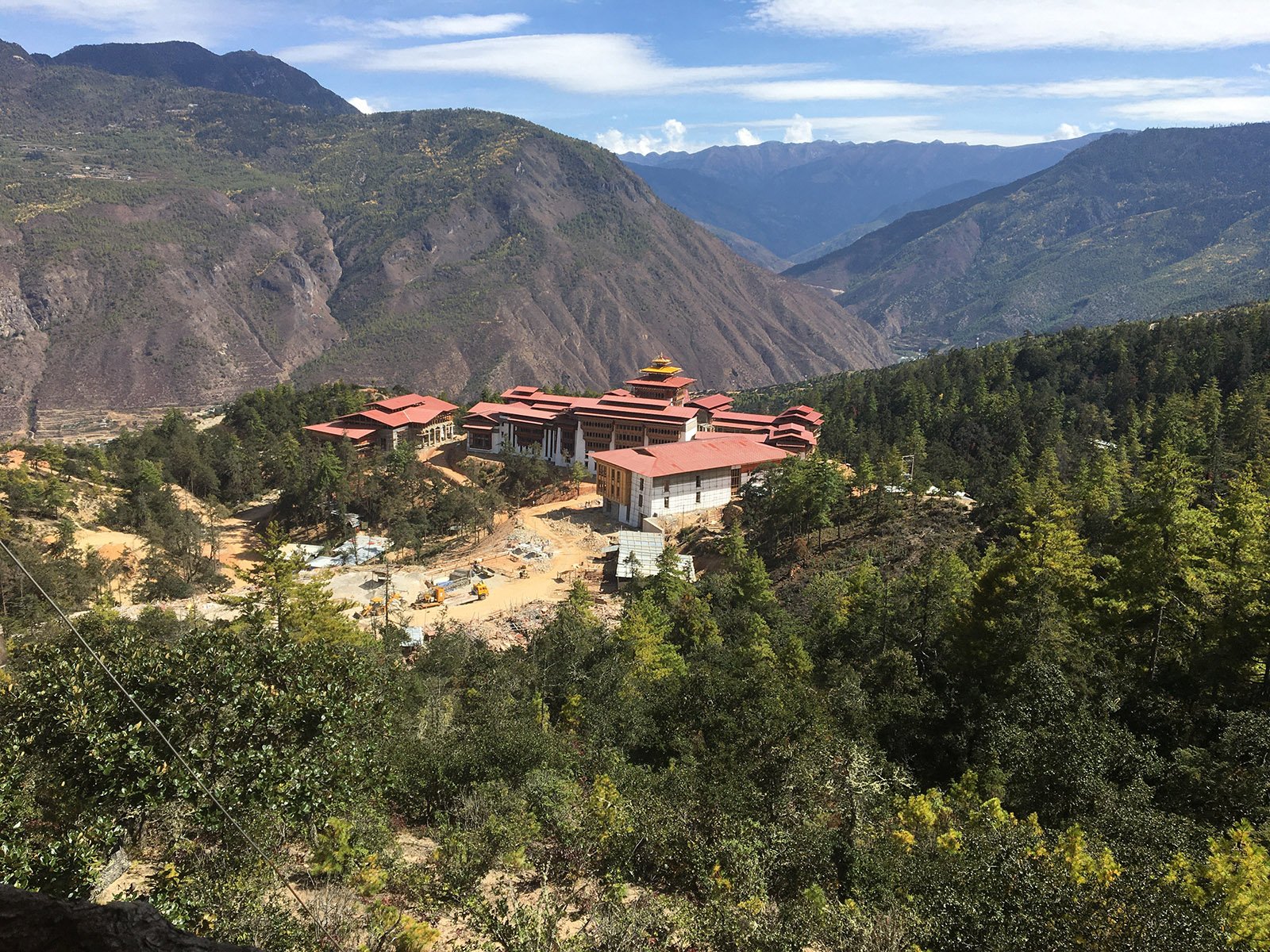

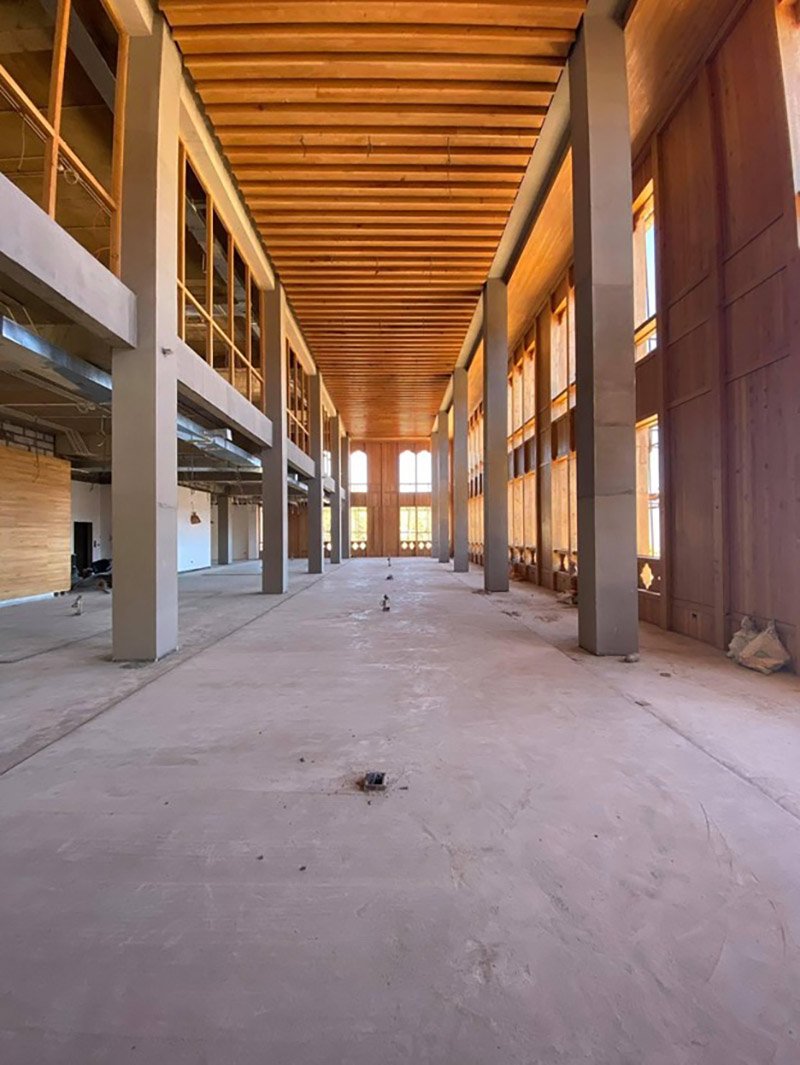
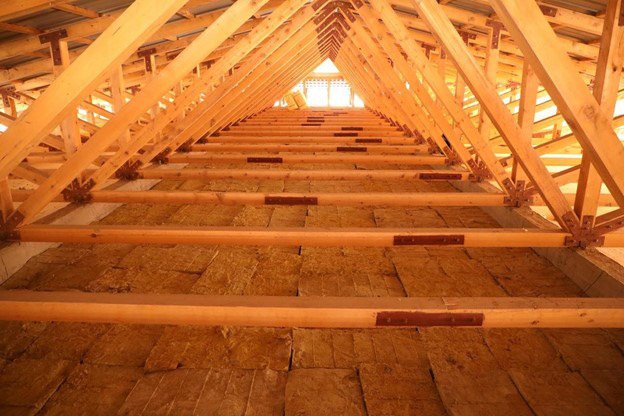
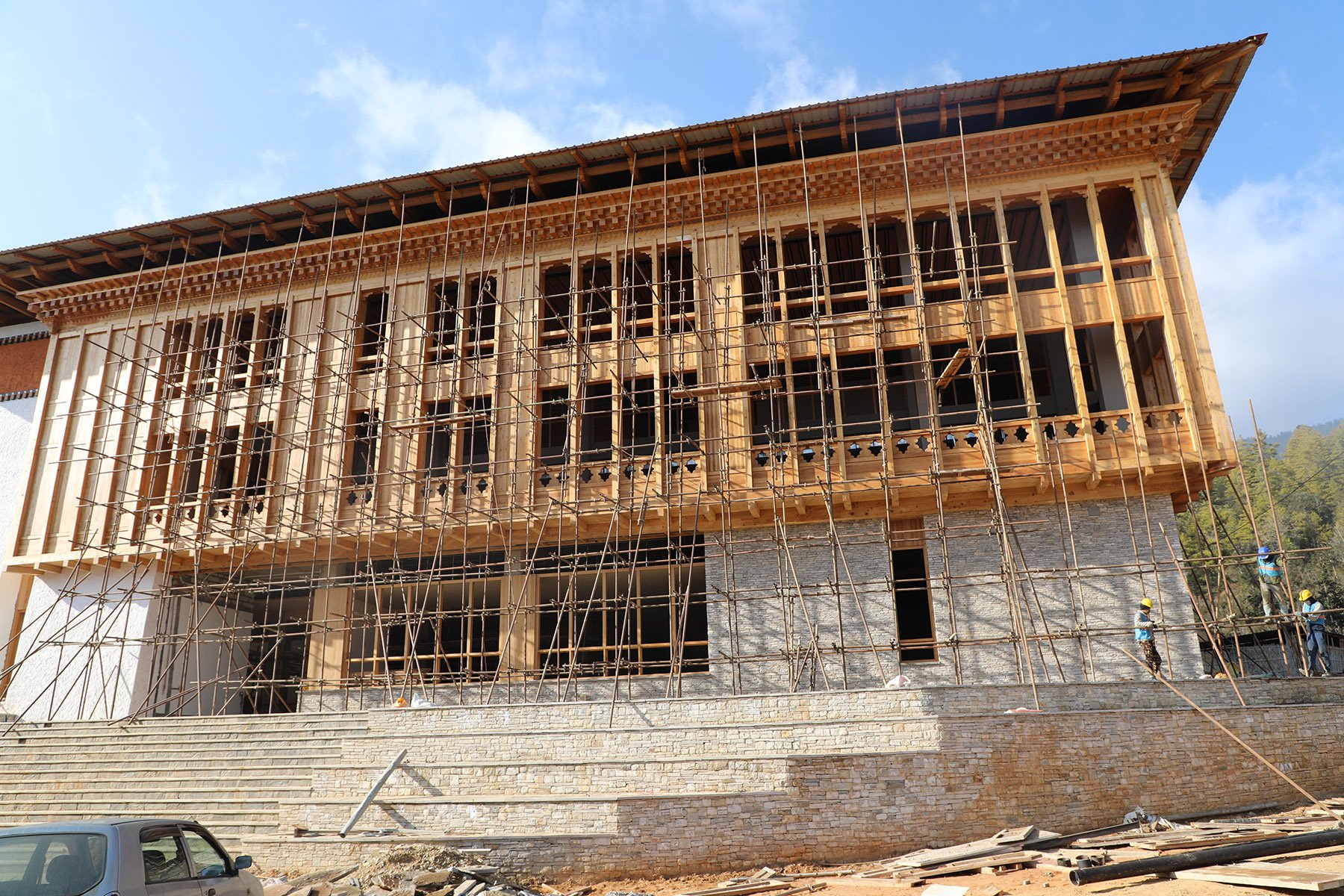
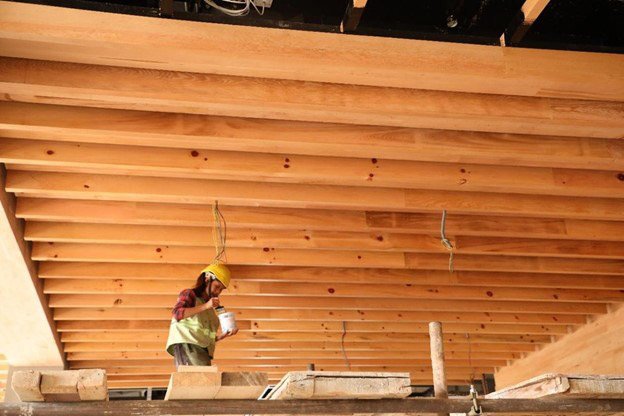
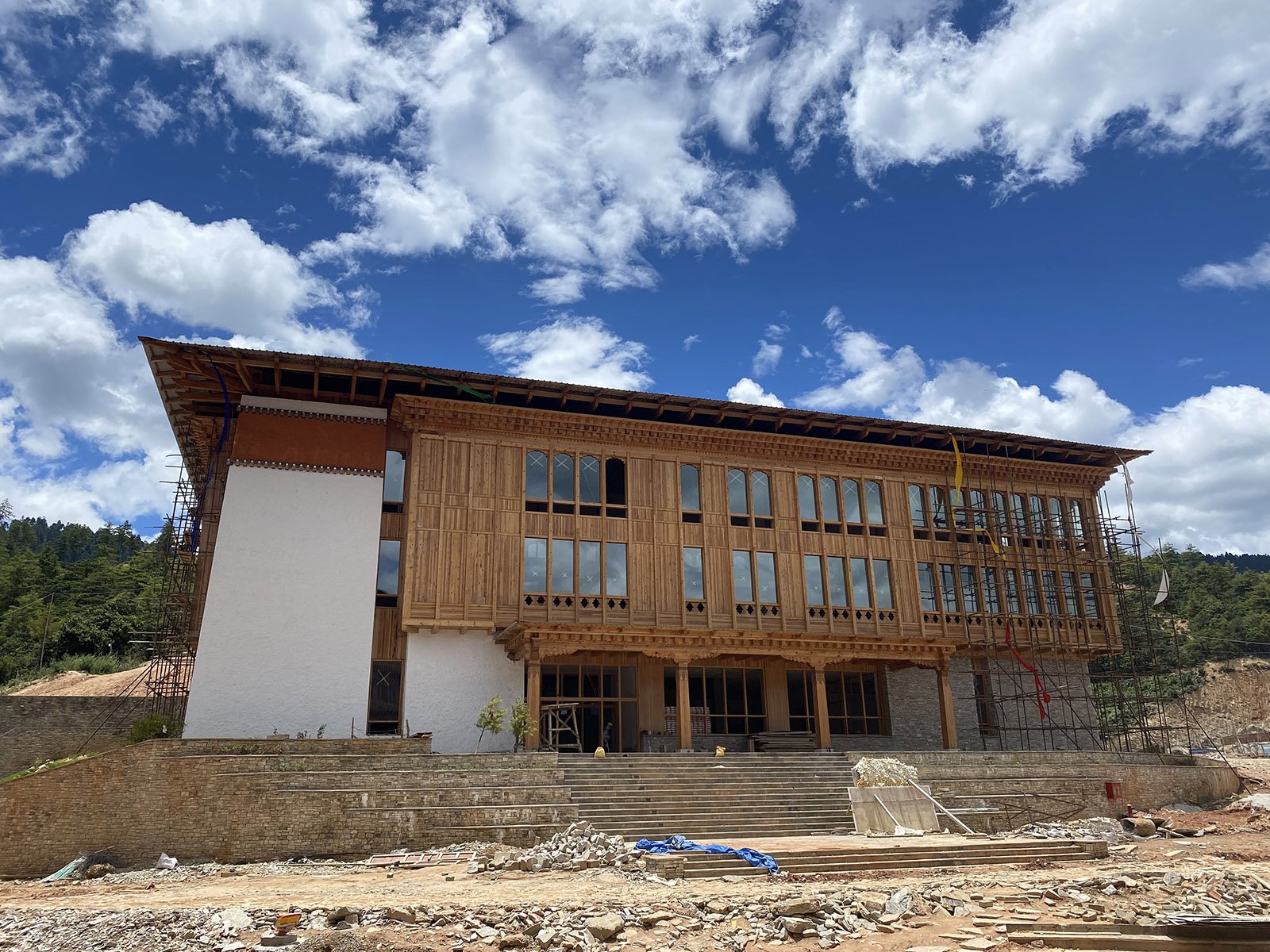
Advancing Climate Change Research and Education
FEATURED PROJECT: HEROES (Climate Data Collection Initiative)
The 2007 IPCC report made clear that there is not enough compiled data in the mountainous Himalayan region to estimate the impact of anthropogenic climate change in the coming decades. In response to this, the Karuna Foundation teamed up with the Ugyen Wangchuck Institute for Conservation and Environmental Research (UWICER) and the Bhutan Foundation to establish the Himalayan Environmental Rhythms and Observation System (HEROES) project in 2012. The HEROES project, also called the Bhutan Phenology Network (BPN), is a community-engaged effort to record both meteorological data at varying altitudes and latitudes as well as long-term phenological and wildlife population data. Since its founding, the HEROES program has reached thousands of Bhutanese youths through climate change curriculum tied to onsite weather data collection stations at 20 schools.
In 2019, The Energy Globe Foundation recognized the impact of the HEROES program with a Bhutan National Energy Globe Award, as well as listing the program as a finalist for the World Energy Globe Award in the Youth Category.
